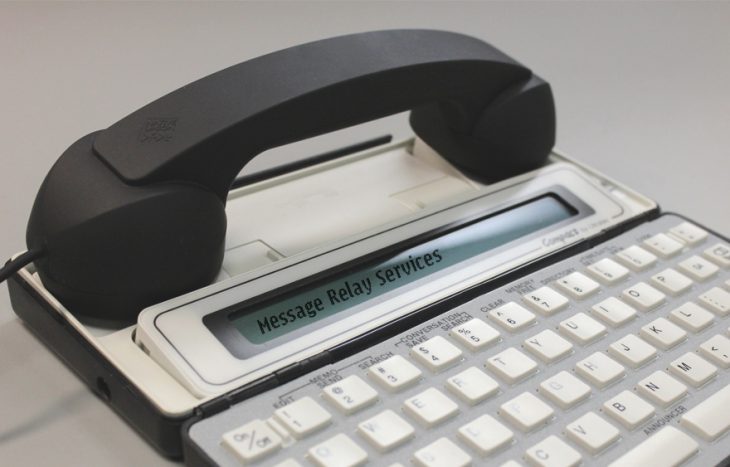
OTTAWA and GATINEAU – The CRTC has set new standards for text-based message relay services to help improve the service for hearing or speech impaired Canadians.
Message relay services (MRS) enable Canadians with a hearing or a speech disability to make and receive telephone calls via text with the assistance of a relay operator. The CRTC has long required that home phone providers offer MRS to customers 24 hours per day, seven days per week, first through teletypewriter (TTY) relay service and then through IP relay services, too.
The Commission said Friday that mobile wireless service providers (WSPs) must begin offering IP relay services to their customers starting June 14, 2019, either by providing the service directly or by outsourcing it to a third party.
“WSPs will be responsible for recovering their costs and may use their own discretion to determine how to do so”, reads TRP 2018-466. “The Commission does not expect that a separate fee for IP relay service would be identified on subscribers’ bills, but rather that the cost of offering IP relay service would be included in the cost of providing the subscribers’ telecommunications services.”
The decision also detailed quality of service standards for MRS that stipulate that each relay operator must have a 45 word per minute typing speed with a 95% transcription accuracy rate. Each message relay service provider must answer 80% of calls within 20 seconds starting immediately, and that standard will increase to 85% of calls within 10 seconds in December 2019. MRS providers that engage a third-party service provider must ensure that the provider meets these requirements.
Noting concerns expressed by accessibility groups, the CRTC added that the functionality of IP relay service must be improved.
“The Commission also directs Bell Canada et al., Cogeco, Eastlink, RCCI, SaskTel, Shaw, TCI, and Videotron to consult accessibility groups to determine how the minimum functionality requirements will be achieved for IP relay service, and to file a report with the Commission, within six months of the date of this decision, that describes the outcomes of discussions and that lists the accessibility groups that were consulted," continues the decision.
TTY relay service will continue to be offered to all home phone subscribers, but not to cellphone subscribers, since TTY signals cannot be transmitted over modern wireless networks. By the end of 2019, Canada's large wireless carriers must file their plans and timeframes to support a relay service based on real-time text, which can be transmitted over modern wireless networks, with the CRTC.
IP relay service will continue to be offered to all home phone subscribers and will also be offered to all cellphone subscribers, though cellphone subscribers wishing to access IP relay service will not be required to subscribe to a home phone service.
The CRTC added this decision doesn’t affect video relay services.
"Message relay services aim to enable Canadians with a hearing or speech disability to make and receive telephone calls on an equal basis with others”, said CRTC chair and CEO Ian Scott, in a statement. “We are therefore ensuring these services remain available into the future, continue to work well as telecommunications networks evolve, and meet the accessibility needs of Canadians, whether they choose to use a home or mobile phone or device."


